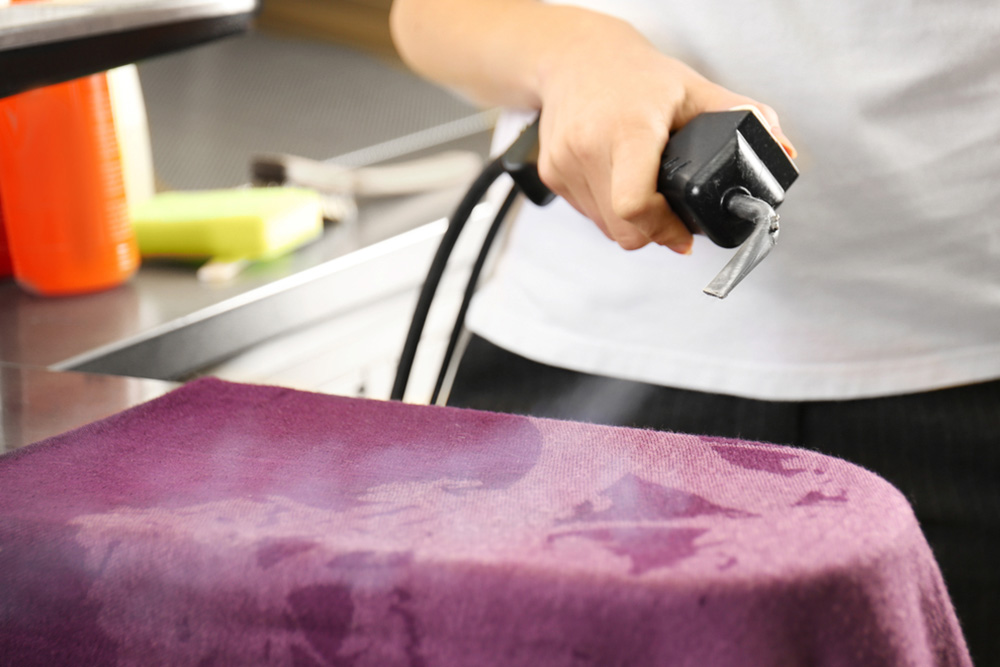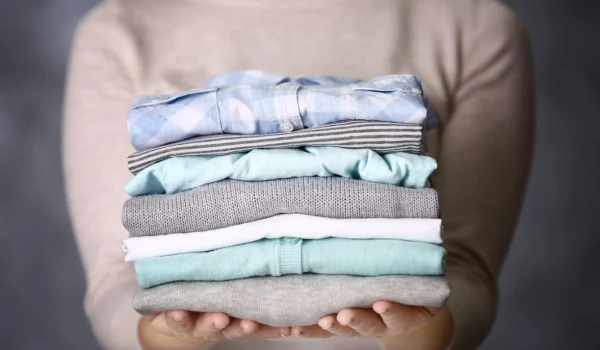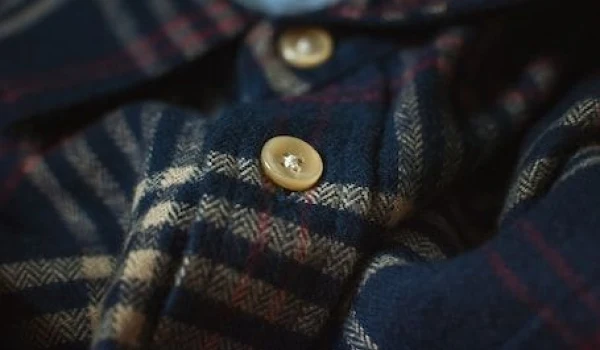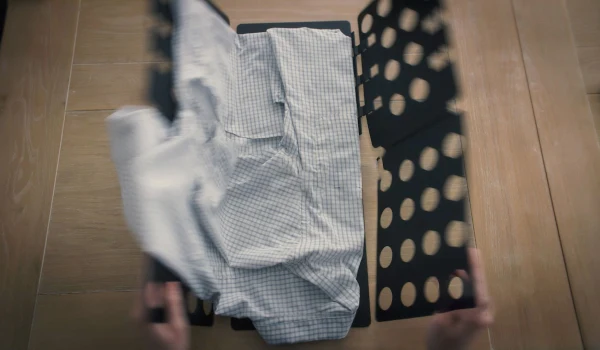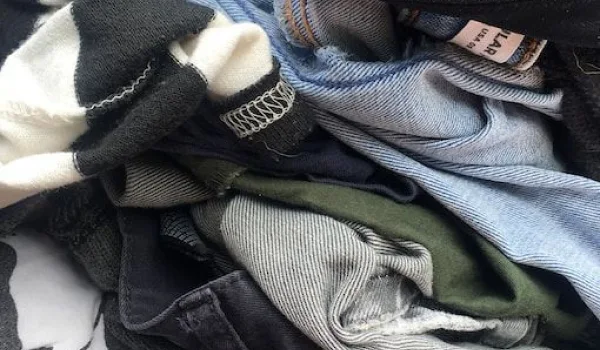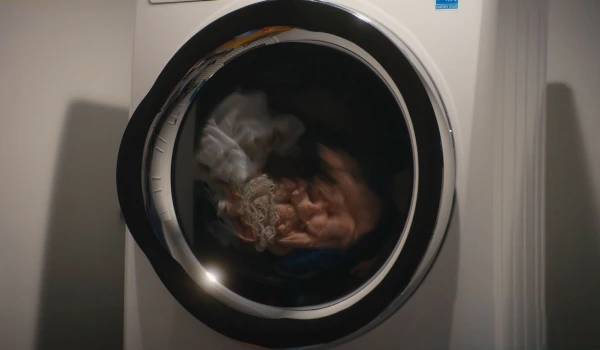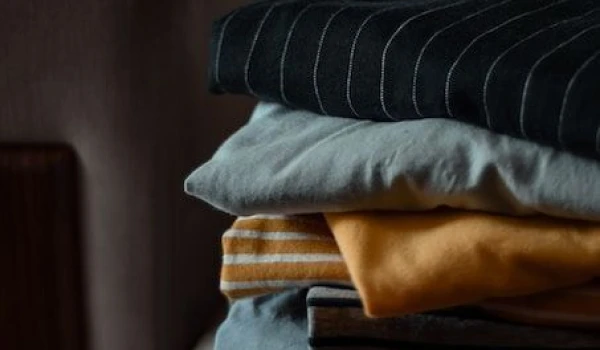How To Prevent Clothes From Shrinking: A Step-By-Step Guide
Accidentally shrinking your clothes during laundry can be frustrating, especially when it's a beloved item that's difficult to replace. To help you avoid this scenario, we've put together a comprehensive guide on how to prevent your clothes from shrinking. By understanding the causes of shrinkage and implementing the right care techniques, you can keep your garments looking their best. If you’re looking for more laundry tips, check out our list of hacks here!
What Causes Clothes to Shrink in the Laundry?
To prevent your clothes from shrinking, it's essential to understand what triggers this issue in the first place. Shrinkage often depends on the type of fabric and how much heat, moisture, and mechanical action it encounters during the laundering process.
Heat Exposure
One of the primary reasons for garment shrinkage is exposure to high temperatures. Washing clothes in hot water or drying them on high heat can cause the fibers to contract, leading to shrinkage. Natural fibers like cotton, wool, and linen are particularly susceptible to shrinking when exposed to heat. To prevent this, always wash clothes in cold water and use a low heat setting on the dryer or air dry them. To learn more about what clothes should go in the dryer, read our guide here.
Agitation and Mechanical Action
The physical agitation of clothes in the washing machine and dryer can also contribute to shrinkage. The friction and movement can cause the fibers to tighten and shrink. Delicate fabrics, such as wool and silk, are more prone to this type of shrinkage. To minimize this, consider using the delicate cycle on your washing machine or hand washing sensitive items to reduce mechanical action.
Incorrect Washing and Drying Methods
Improper washing and drying methods, such as overloading the washing machine or using the wrong detergent, can also lead to shrinkage. Overloading the machine can prevent clothes from moving freely, causing increased friction and agitation. Additionally, using harsh detergents or fabric softeners can weaken the fibers, making them more susceptible to shrinking. Always follow the care instructions on the label and avoid overloading your machine.

Types of Shrinkage in Clothes
Understanding the different types of shrinkage can help you take the necessary steps to prevent it from happening.
Felting Shrinkage
Felting shrinkage occurs in fabrics made from animal hair fibers, such as wool. These fibers have microscopic scales that lock together when exposed to moisture and heat, causing the fabric to shrink. This type of shrinkage is common in wool sweaters and can be avoided by washing wool garments in cold water and air drying them.
Relaxation Shrinkage
Relaxation shrinkage happens when natural fibers like cotton, linen, and silk, as well as synthetic fibers, relax back to their original size after being stretched during manufacturing. This type of shrinkage is more likely to occur during the first wash, especially if clothes are washed in lukewarm or hot water. To prevent relaxation shrinkage, wash new clothes in cold water and avoid using hot water in subsequent washes.
Consolidation Shrinkage
Consolidation shrinkage results from a combination of heat, moisture, and mechanical action. When clothes made of natural fibers are exposed to these elements, the tension created during manufacturing is released, causing the fabric to shrink. This type of shrinkage is common in t-shirts and other cotton clothes. To minimize consolidation shrinkage, use cold water, and avoid high heat settings in the dryer.

Fabrics More Prone To Shrinking
Certain fabrics are more likely to shrink due to their fiber composition and structure. Understanding which fabrics are prone to shrinkage can help you take extra care when washing and drying them.
Cotton
Cotton is one of the most common fabrics that shrinks, especially when exposed to heat. Cotton clothes should be washed in cold water and air dried to prevent shrinkage.
Wool
Wool is highly susceptible to felting shrinkage due to its natural fiber structure. Always wash wool garments in cold water and air dry them to maintain their shape.
Rayon
Rayon is a delicate fabric that can easily shrink if not handled properly. Hand wash rayon garments in cold water and air dry them to avoid shrinkage.
Linen
Linen is prone to shrinking when exposed to heat and moisture. To prevent this, wash linen sheets and garments in cold water and air dry them.
Silk
Silk is a delicate fabric that can shrink if washed or dried improperly. Hand wash silk items in cold water and air dry them to preserve their size and shape.
Denim
Denim can shrink when exposed to high heat, especially during the drying process. To prevent your jeans from shrinking, wash them in cold water and air dry or tumble dry on low heat. For more information, check out our ultimate guide to caring for your jeans here.

Fabrics Less Prone To Shrinking
Some fabrics are less likely to shrink, making them easier to care for.
Polyester
Polyester is a synthetic fabric that resists shrinking due to its durable fibers. It can be washed in warm water and tumble dried on low heat without much risk of shrinkage.
Nylon
Nylon is another synthetic fabric that is less prone to shrinking. It can withstand regular washing and drying without significant shrinkage.
Spandex
Spandex is a stretchy synthetic fabric that resists shrinking. It can be washed and dried without losing its shape, making it ideal for activewear and form-fitting garments.

How To Keep Clothes From Shrinking
Preventing clothes from shrinking requires careful attention to washing and drying practices. Here are some tips to keep your garments looking their best.
Read the Care Labels
Care labels provide essential information on how to properly care for your clothes to prevent damage, including shrinkage. Always follow the instructions on the label to avoid shrinking your garments.
Use Cold Water
Washing clothes in cold water is one of the most effective ways to prevent shrinkage. Cold water is less likely to cause fibers to contract, keeping your clothes in their original size and shape.
Air Dry
Air drying is the safest way to dry your clothes, as it eliminates the risk of shrinkage caused by heat exposure. Invest in a drying rack or line dry your clothes to preserve their size and shape.
Tumble Dry Low Heat
If air drying is not an option, use the tumble dry low heat setting on your dryer. This setting uses minimal heat, reducing the risk of shrinkage while still drying your clothes effectively.
Hand Wash
Hand washing is a gentle method that allows you to control the washing process, reducing the risk of shrinkage. This is especially important for delicate fabrics like wool and silk, which are more prone to shrinking.

How To Store Clothes To Prevent Shrinking
Proper storage is also crucial in preventing clothes from shrinking. Here are some tips to ensure your garments stay in their best condition.
Use Breathable Storage Containers
Store your clothes in breathable containers to prevent moisture buildup, which can lead to shrinkage. Avoid plastic containers that can trap moisture and cause fabric fibers to contract.
Avoid Overcrowding
Overcrowding your storage space can cause clothes to become compressed, leading to shrinkage. Give your garments enough space to breathe and retain their shape.
Choose Appropriate Hangers
Use sturdy, well-shaped hangers to prevent stretching and shrinking. Avoid using wire hangers that can distort the shape of your clothes.
Fold Heavy Items
Heavy garments like sweaters and denim should be folded rather than hung to prevent them from stretching out of shape and shrinking.

Will Dry Cleaning Prevent Shrinkage?
Dry cleaning is an effective way to prevent shrinkage, especially for delicate and hard-to-wash fabrics. Professional dry cleaners use non-water-based solvents to clean clothes, which eliminates the risk of shrinkage from heat and moisture exposure.
Not only does dry cleaning help prevent your clothes from shrinking, but it also effectively removes stains and maintains the integrity of your garments. At Rinse, we offer dry cleaning services 7 days a week, with convenient pickup and delivery straight to your door.
By following these tips and tricks, you can keep your clothes looking their best and avoid the frustration of shrinkage. Remember to always read care labels, use cold water, air dry when possible, and consider professional dry cleaning for delicate items. If you’re looking for more laundry tips, check out our other blogs on laundry care.

Try Rinse today!
Our laundry experts know the proper care for all fabrics, making sure your clothes come out the same size they were when they went in. Similarly, our dry cleaning practices keep your special outfits in good shape.
All we need from you is a bag filled with your dirty clothes. We'll take it from there — washing, drying, ironing, and folding. Schedule your first pickup to experience laundry bliss.
Contact us at Rinse today to see our skill in action.

Have laundry or dry cleaning to do?
Rinse picks up, cleans and delivers 7 days a week. Amazingly awesome. Ridiculously simple.











